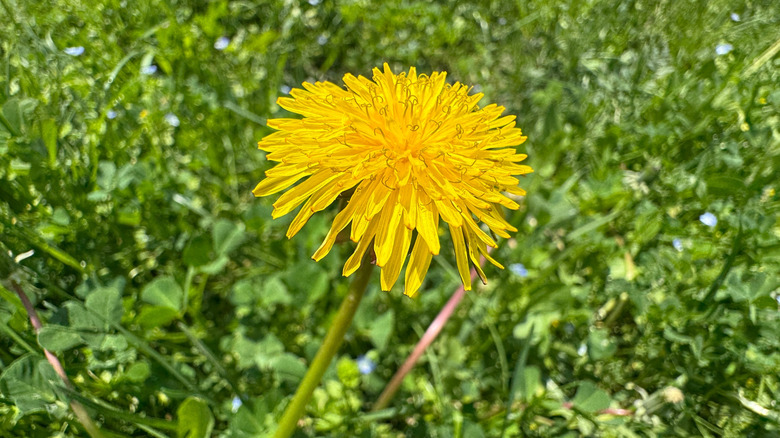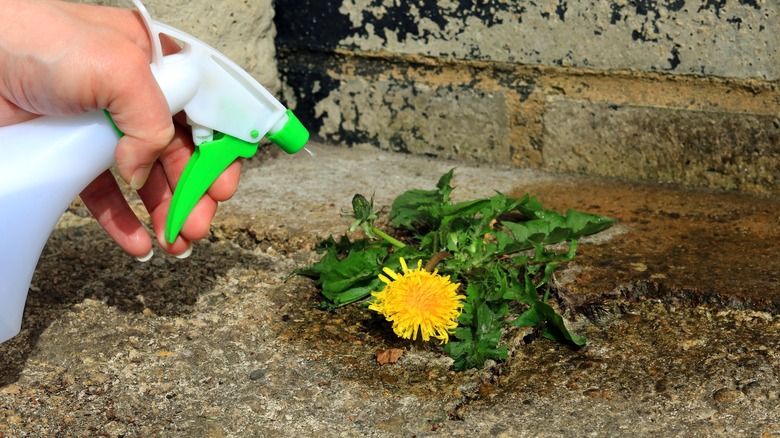Say Goodbye To Unwanted Dandelions With A Simple Ingredient
We may receive a commission on purchases made from links.
Who doesn't like to see the bright yellow heads of dandelions (Taraxacum officinale) growing wild in a field? And what kid hasn't enjoyed telling the time with a dandelion clock? The problem is not so much the plant but where it grows. Everywhere. It pops up in your paths and snarls at you from the middle of the lawn (the word "dandelion" actually comes from the French, "dent de lion", or "lion's teeth"). There are even some scary dandelion myths (not that you should believe them).
If you don't want to use poisonous chemicals in your yard, there's a fiery solution for getting rid of dandelions, but it's not one you'll want to use on your lawn or too near the house. Fortunately, you can say goodbye to dandelions with a simple ingredient that's natural and found in hardware and garden stores just about everywhere. It's called horticultural vinegar. It's a lot like the white vinegar you probably have in a cupboard at home, but the active ingredient, acetic acid, is concentrated at 20% rather than 5%. As a result, it can be much better at tackling tough, persistent weeds like dandelions.
How to maximize the effectiveness of horticultural vinegar
A lot of people spray horticultural vinegar, but there are several problems with doing this. First, it's non-selective. In other words, it will kill all plants, including grass. Second, it's a contact herbicide, so it only kills where it touches. Dandelions have deep tap roots, so if you only kill the leaves, they will come back again. Glyphosate may be one of the products you'll want to think twice about using for tackling weeds, but it is systemic: It kills the whole plant. Third, the concentration of acetic acid in horticultural vinegar is strong enough to cause serious irritation to the eyes, nose, throat, and lungs. As such, it should never be sprayed near children or animals.
Fortunately, there's a clever solution that's safer for people and pets while being lethal to the dandelion. Instead of spraying the vinegar, you inject it. You don't need a needle; something like the low-cost Frienda Large Plastic Syringe is ideal. Carefully fill the syringe with horticultural vinegar (wearing gloves to protect your hands), then push it directly into the crown where the leaves meet the root. Injecting here is more accurate, so you won't harm other plants, and more economical because there's no waste. Dandelions actually have several benefits, so maybe don't kill all the ones in your yard before you read this, but for those that are unwanted, a simple ingredient and a cheap syringe will soon get the job done.

